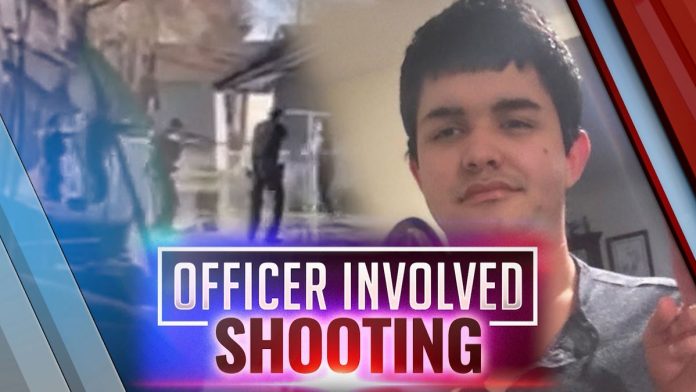
IDAHO FALLS, Idaho (KIFI) — The Idaho Critical Incident Task Force is in the middle of its investigation for the Pocatello police shooting of Victor Perez.
Local News 8’s Doug Long spoke with a man who, for 15 years, had to walk a fine line between the men and women in blue and the public. His experience sheds light on the difficult task a city and community face in the aftermath of a police shooting.
“I think it goes without saying there’s no police officer I’ve ever met that wants to have an outcome like that,” says Pierce Murphy, former ombudsman for the Boise Police Department. “No officer starts their day saying, you know, that they hope they shoot someone that day, in fact it’s the opposite, and so when it does happen, it impacts them greatly.”
After a rash of 7 Boise police shootings over 20 months in the 1990s — resulting in 8 deaths, including one officer — the Boise City Council created the office of Community Ombudsman. The job would entail investigating complaints against officers, including police officer-involved shootings.
Pierce Murphy was selected for the position in 1999. As a former California police officer, he brought policing experience and a master’s degree in counseling psychology, but even with those qualifications, he wasn’t immediately welcomed by Boise Police.
“It took a long time,” Murphy recalled. “Initially, there was a lot of resistance, and I understood that. I understand it now. Again, police leadership and the police members want to protect each other. They’re worried about each other and having an outsider looking at that and making recommendations is difficult.”
Nearly five years after being tasked to bring accountability to the Boise Police force, Murphy faced a critical moment both for the city and his career — a situation not all that different from the one that occurred in Pocatello on April 5.
Murphy says it is probably the experience that affected him and the community most. A 16-year-old boy was shot and killed by police in his family’s driveway in front of his father.
“The boy was having a mental health crisis and had armed himself with an antique Japanese World War II-era rifle with a bayonet attached,” Murphy described. “The father called the police for helping and defusing the situation, and the officers showed up and perceived that threat and shot and killed the boy in front of his dad. It was just an awful situation.”
When asked if changes were made to prevent something like that from happening again, Murphy has this to say.
“Yeah, there were,” he recalled. “There was increased training in identifying and dealing with people in mental health crises. There was increased training and policies around de-escalation.”
He also says there are policies that can go a long way in similar situations.
“The one thing I think really would help a whole lot is if the police department, or the city in conjunction with the police department, could improve the speed and the quality with which they provide support to the family or survivors of those who unfortunately die in police interactions. That family is experiencing a huge trauma. And, in your case, they saw it happen and I’ve experienced that too, with survivors. And so, I would encourage your city to think about what can be done. Hopefully, this never happens again, but what can be put in place so that if it does, the city can reach out a loving and caring, and supportive hand. It doesn’t mean that the officer did anything wrong. It doesn’t mean that they’re taking sides. It just means that they’re caring for their citizens.”
Murphy also says these investigations are never easy. They take a long time and are often highly emotional for both the officers and the public. He says patience will be needed while the process moves forward, and once completed, the healing can begin.



